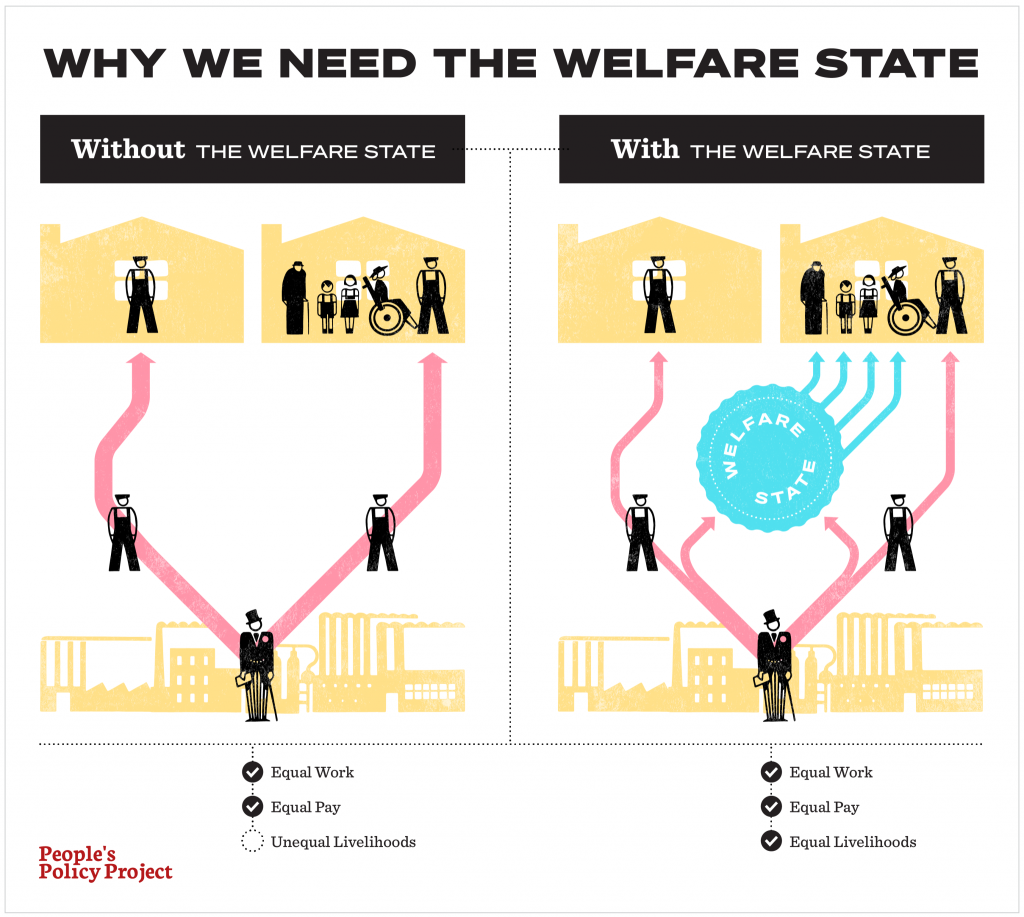Tim Wu has a piece in the New York Times that is perfectly designed to irk me. In it, he argues that the Biden administration has broken from center-left orthodoxy by eschewing tax-and-transfer programs in favor of combatting economic concentration and redistributing money inside the market.
Here is Wu:
To appreciate the novelty of the Biden administration’s approach to the economy, it is worth remembering that over the past 40 years the orthodoxy on the center-left has been a “tax and transfer” strategy. It has meant tolerating or even encouraging corporate consolidation and profit while maintaining the expectation that those profits would be redistributed in the service of the less powerful and less well-off. The popular metaphor of a national pie suggested focusing first on growing the pie and then on dividing it up equitably.
[…]
The Biden administration, in a break with center-left orthodoxy, seeks to address economic inequality not through taxation and transfers but through policies that allow a larger number of people and businesses to earn wealth in the first place. That is the meaning of the somewhat mysterious liberal catchphrase “growing from the middle out.” The goal is not the redistribution but the “predistribution” of wealth, to use a term popularized by the political scientist Jacob Hacker.
Wu gives three examples of this supposed alternative to tax-and-transfer policy:
- The blocking of dozens of mergers, including one between Spirit Airlines and JetBlue Airways.
- Subsidies for domestic semiconductor production, which led the Taiwan Semiconductor Manufacturing Company (TSMC) to build a factory in Arizona.
- A regulation reducing credit card late fees from $32 to $8.
Wu’s Argument Is Weak
Wu’s argument here is curious for a couple of reasons, even on its own terms.
It’s not true that Joe Biden did not try to address economic inequality through taxation and transfers, i.e. the welfare state. Much of the first half of his presidential term was spent trying to pass the Build Back Better (BBB) legislation, which would have created new programs or increased spending for child benefits, child care, pre-k, paid leave, and home care for the disabled. I didn’t particularly like the way this bill was written and it did ultimately fail, but Biden did try to do it.
Wu’s examples are also not very good for the point he is trying to make.
In his second example, he celebrates the federal government giving a bunch of money to a foreign company that currently controls over 60 percent of the global semiconductor market to build a semiconductor factory in Arizona. Is that really a policy that allows “a larger number of people and businesses to earn wealth in the first place”? I am not trying to critique the policy, but it’s pretty clearly in tension with Wu’s anti-bigness crusade.
In his third example, he celebrates the CFPB reducing credit card late fees from $32 to $8. This regulation is predicted to reduce aggregate late fee expenditure by $10 billion per year, which is less than 8 percent of $130 billion of total interest and fees paid by consumers to credit card companies each year. It is unclear whether this will even result in a net savings to credit card consumers as the credit card companies might make up for it by increasing other fees or interest rates.
But even putting that aside, the credit card late fee regulation is not an anti-bigness, pro-competition policy. The regulation leaves the corporate structure of the credit card sector completely untouched but modifies the sector’s behavior through what antitrust types typically deride as “command-and-control” policy. That is, rather than breaking up the credit card companies in order to coax competition, the CFPB is just controlling them directly through regulation. Again, that’s fine, but it’s pretty clearly not what Wu presents it as.
There Is No Substitute for the Welfare State
The other mistake Wu makes is that he presents his particular policy agenda, which is sometimes called a “predistribution” agenda, as if it is some kind of substitute for the welfare state. Wu is not the only to do this and there are conservative, liberal, and socialist versions of this argument. But all of them are wrong.
As I have pointed out over and over again here at 3P, the welfare state’s primary function is to provide income to nonworkers: children, elderly people, disabled people, students, caregivers, and the unemployed. There are lots of things you can do to change the way that market income is distributed among market participants: break up big companies, regulate prices, compress wages through unionization, and so on. But this will not solve the problem that the welfare state solves because the welfare state distributes income to people who are not currently market participants.

Look at the Build Back Better bill discussed already above. Who were the benefits for? Children, individuals out of work for caregiving or medical reasons (paid leave), and the disabled. I don’t care how many businesses you break up or how many domestic markets are seeded with government subsidies. It’s not going to solve the child care financing problem because that problem is fundamentally rooted in the fact that children do not receive market income. It is not going to solve the problem of home care for the disabled for the same reason.
I am not picking on Wu here. Like I said already, this idea that the welfare state is some kind of band-aid for market inequality that would not be necessary if labor and capital income were more evenly distributed has purchase in a lot of political groupings, including among some socialists. But the welfare state does not exist to move money from highly-paid workers and wealthy capitalists to lowly-paid workers and small business owners. It exists to move money from those who receive factor payments to those who do not, i.e. from workers to nonworkers.
It worries me whenever I see prominent people dabble in this notion that we don’t need welfare expansion, that it can be substituted by some other “predistributionist” policy. The more widespread that belief becomes, the harder it will ever be to achieve an egalitarian society. It’s also unnecessary: one can advocate for reforms that alter the distribution of factor payments without also presenting those reforms as alternatives to the welfare state.

